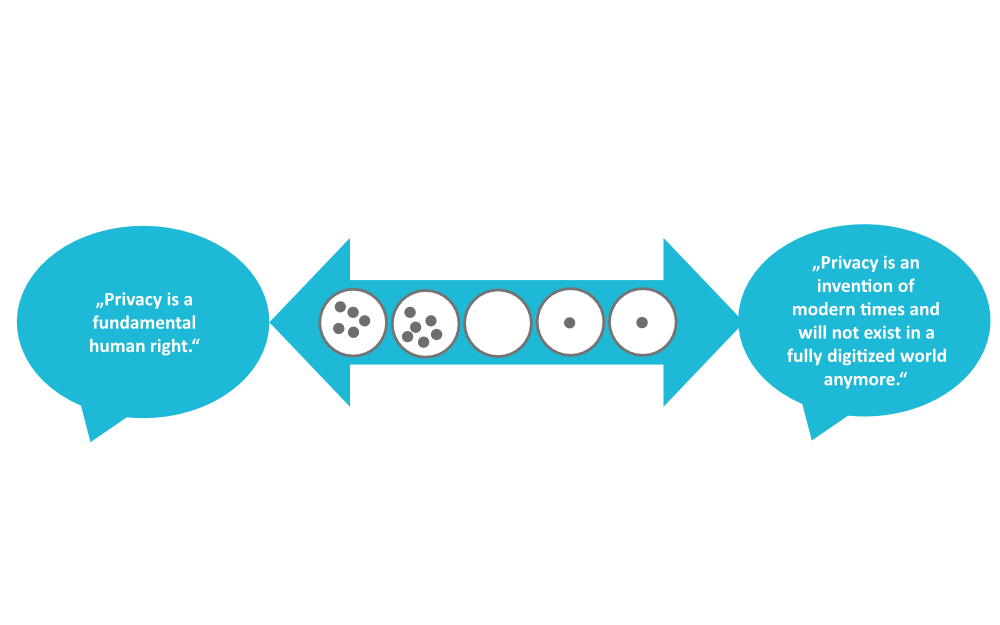Interestingly enough, despite being a heavily discussed topic, surveys on privacy and data anonymization are still pretty rare.
In September of this year, we were invited to participate at an event from Digitalstrategie.NRW (an initiative on digitization, coined by the Ministry of Economic Affairs from North Rhine-Westphalia) with a talk on data anonymization. What made this event unique is that we had the opportunity to ask questions to the audience and get with them into an dialogue.

Federal State Arm of North Rhine-Westphalia
While the sample size of the survey is fairly small and doesn’t consist of privacy experts (around 150 participants, mainly entrepreneurs based in Northrine-Westphalia with different backgrounds), we still believe that the results of the survey are interesting.
Digitalstrategie.NRW Event “AI & Data”: Survey Results
Privacy: Fundamental Right or Non-Existent in the Future?
The vast majority of participants see privacy as a fundamental human right.
This is contrary to the opinion of some experts, such as Andreas Weigend, former Chief Data Scientist at Amazon and author of Data For The People or Tesla and SpaceX CEO Elon Musk. In their opinion, there will be no more privacy in the future and our world will be determined by algorithms.
On the other side, a digitized world without any privacy and social scoring, as practised in China for example, is hardly imaginable from an European perspective.
How do you asses the degree of maturity of your company in regard to “data readiness”?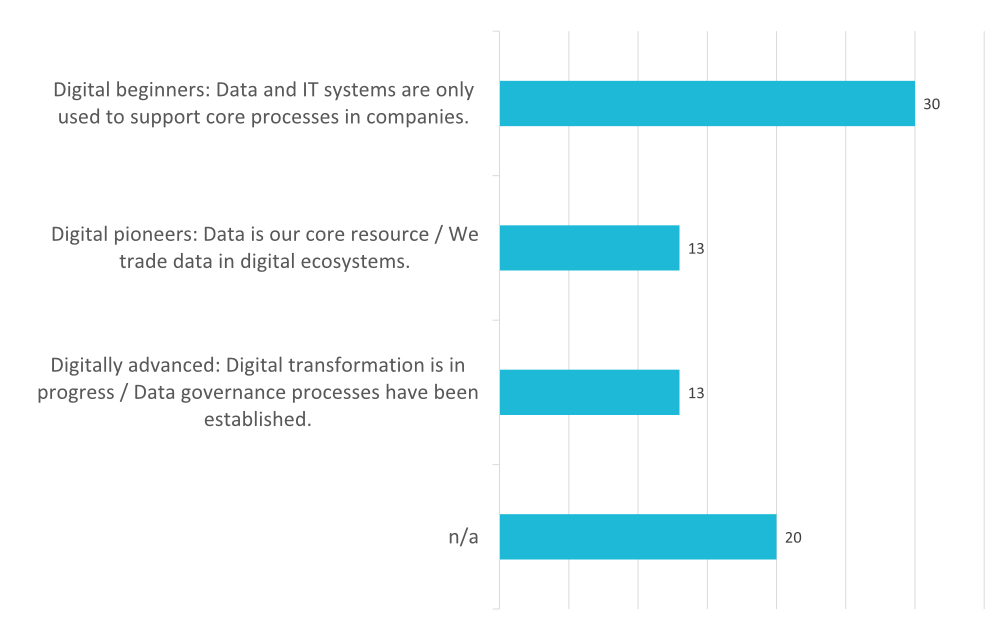
Although our environment is being more and more digitized, most of the entrepreneurs still consider their companies to be “digital beginners”.
What concerns do you have about sharing your business data? (Multiple selection)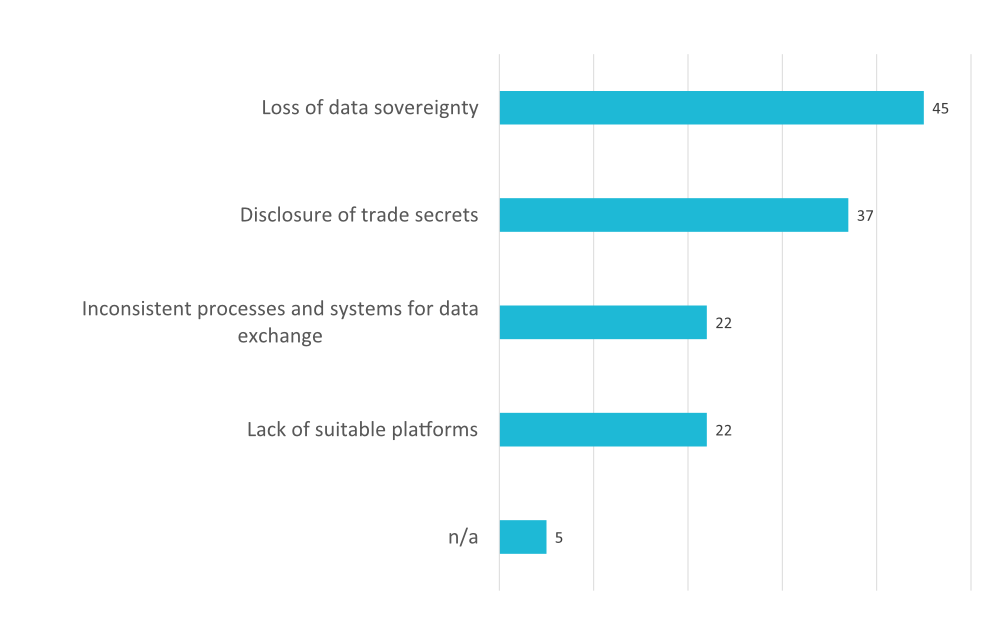
From a business perspective, most participants have concerns about data protection and data privacy.
Why don’t you get the data that are necessary for your digital business model? (Multiple selection)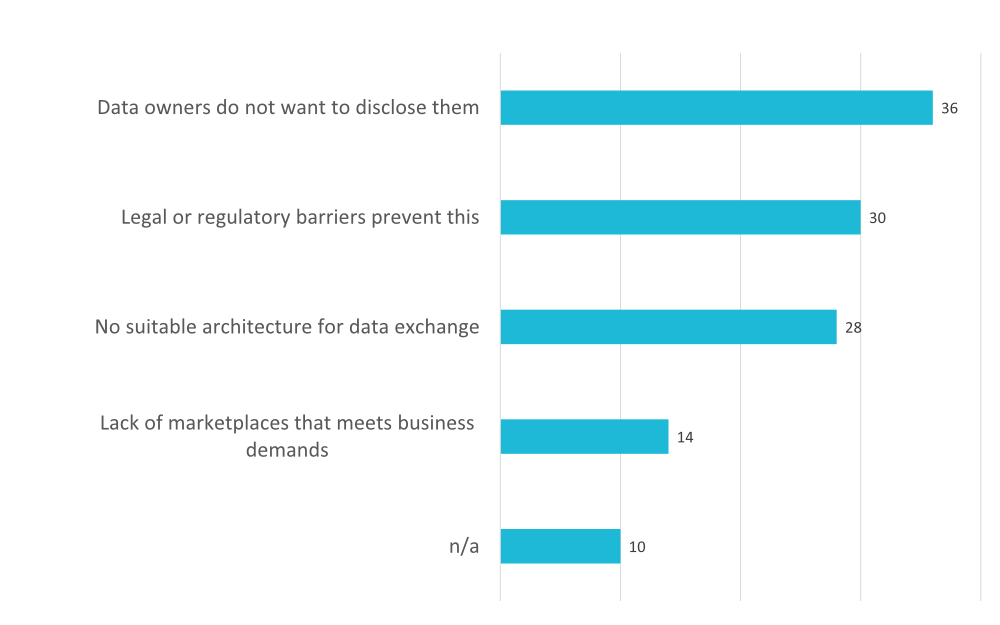
Most of the participants surveyed see individual data protection, legal standards and a lack of suitable IT-infrastructure and architecture as the main reasons for not receiving the data they need for their business models. Customers’ reluctance to share sensitive data can also indicate a lack of trust in business processes.
Under what terms of use would you disclose your personal data? (Multiple selection)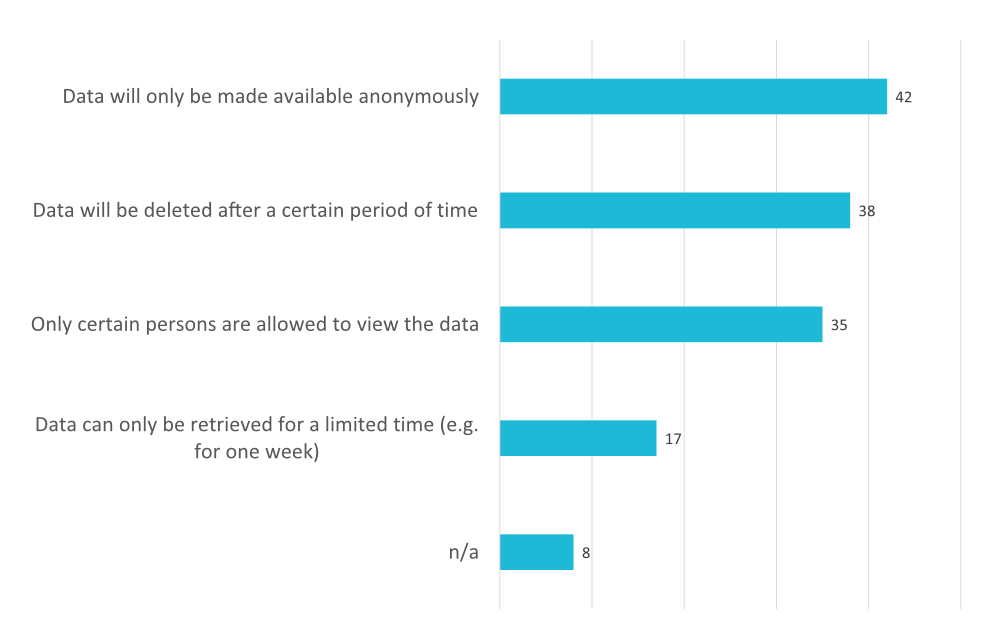
With this question, the participants were asked about their own personal data: For many of them anonymity of the data, clear deletion regulations as well as clearly defined access authorization play an important role for the potential use of data.
Would data anonymization be a solution to your challenges in data privacy?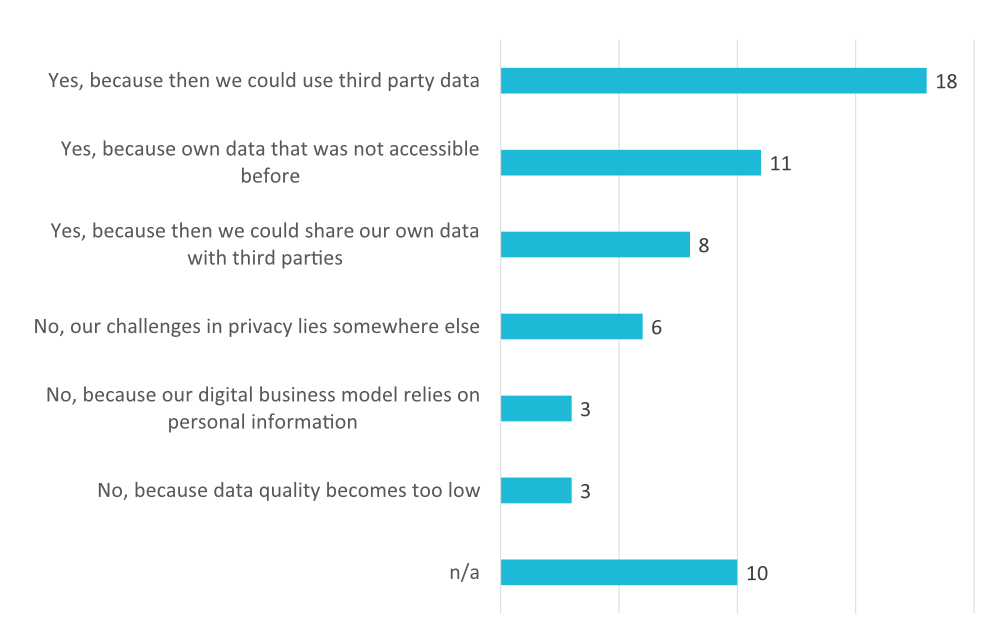
For many, data anonymization is a possible solution for data protection issues when using data. Interestingly, the common problem of data utility vs. privacy is only an issue for a few respondents.
What would strengthen your confidence as an entrepreneur in Privacy-Enhancing Technologies the most?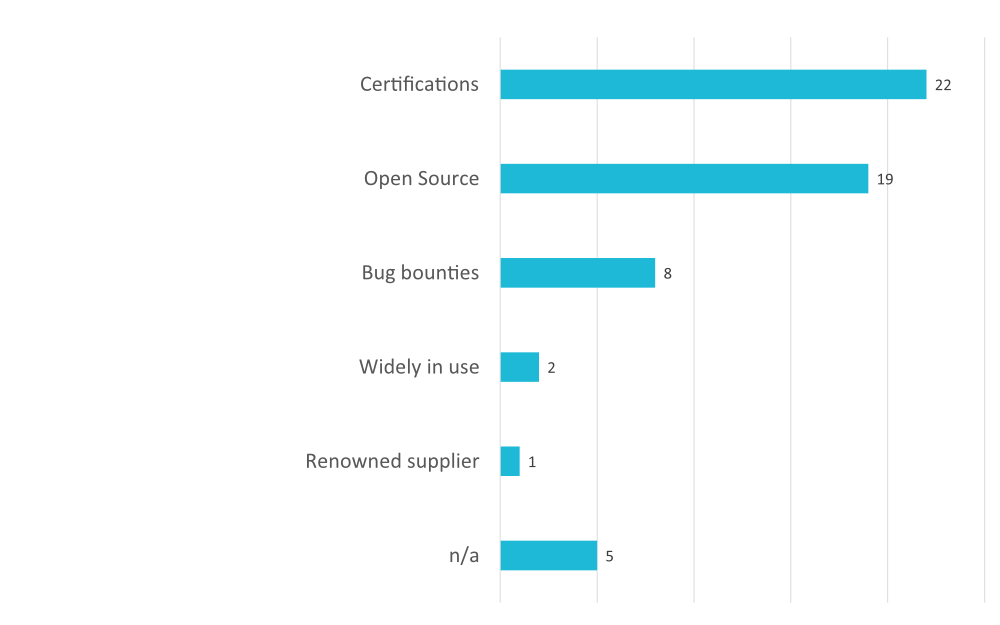
As expected, certifications and open source offerings would most likely contribute to promoting confidence in Privacy-Enhancing Technologies.
What do you think, are you surprised by the results or would you have answered similarly?
Categorised in: Anonymization, GDPR, General, Privacy
AI Data Anonymization Digitalstrategie.NRW Digitization Event Privacy Survey
